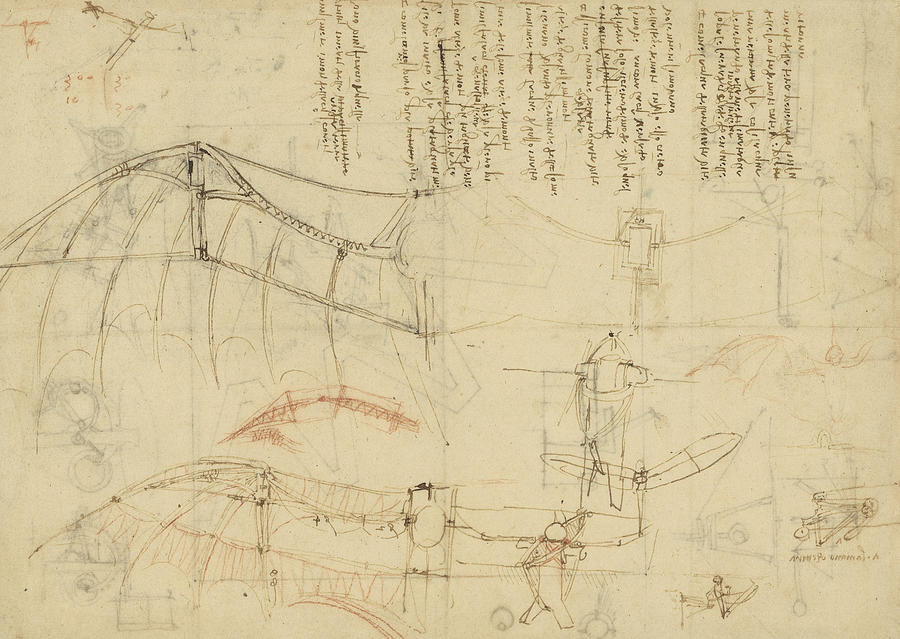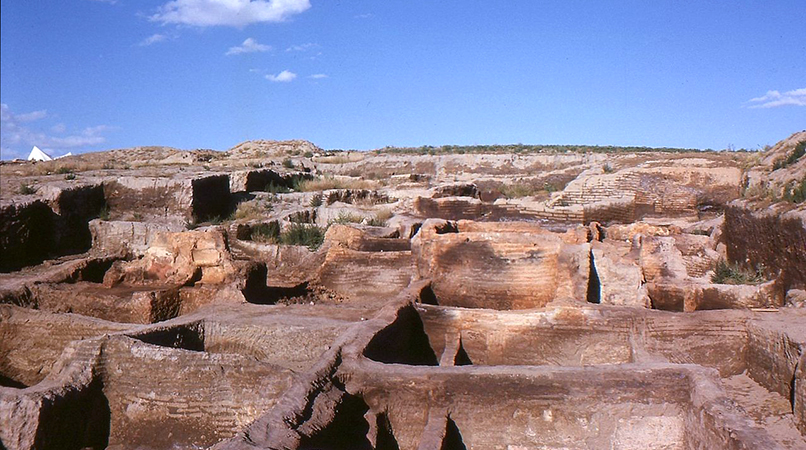What if Daedalus was not the daredevil we imagine? Sure, he was puffed up with cocksure hubris and overweening pride. Not to deny somewhere in his intention he was stunting or reckless or flying at speeds. Naturally, for his fatal conceit, the heat of the sun melted the wax on his wings. Perhaps some invisible solar storm even singed his eyelashes and fringe, like an infernal Chicago tenement gas oven, carbonizing what was left of his angel hair to the point of ash. Likely, by understandable instinct, he smudged his forehead and cheek with the facts he burned. Certainly, he pitied himself as he wiped the sweat from his brow and wrung the tears from his eyes by squeezing them tight. After all, pride must suffer pain, so WASPish mothers tell us at Sunday School. But was he really so bad, or was there a light hidden under bushels of flaxen feathers? Was he just being a good father, or mother maybe, holding his beloved tight to his bosom in a perennial flight from the various terrors that chase the young, making them stumble in the dark, and occasionally fall, tripping over a Christmas tree in their excitement for that little bit of excess that their parents have promised, hiding under a rock at night what they find with great glee in the morning (Nietzsche's "active self-forgetfulness")? Was he comforting his son Icarus, reassuring him everything would be alright and that there was nothing to fear? Was he perhaps attracted like a moth to the brightest light? Was he not warmed from the tip of his nose to the top of his head, from the prints of his fingers to the nails on his toes by proximity to such a prodigious star? Was that rarefied air upon which he wafted not a thermal rising from that star's radiant inner heat? Was he not lost in the moment, entranced by the raptures of the deep? Was he really hell bent on destruction playing chicken with the moon and the stars and the sea? Or was he more workmanlike, a reactor, toying with brushes and sepias and canvas like a Chinese scholar tallying the treasure of the emperor on an abacus strung with pearls, responding to the call birds in the breeze, an imp of his own perversity?



 Or was Daedalus blinded I wonder for his transit beyond the cursus, for which he paid with his fall from grace from the heavens? Wasn't Lucifer the best? So Milton suggests. Wasn't Daedalus accosted by some barker of the lute?
Or was Daedalus blinded I wonder for his transit beyond the cursus, for which he paid with his fall from grace from the heavens? Wasn't Lucifer the best? So Milton suggests. Wasn't Daedalus accosted by some barker of the lute?
I wonder could he play the Spanish guitar, picking the notes from the ghosts of the fog, serenading his own Mephistopheles? Would it matter if he missed a step or improvised the odd bridge in the chatter of his own Bach?


 I don't think it helps to imagine the outcome of the inevitable clash of angels and demons. There is a rigidity there--in the story line, if nothing else--a cordillera or a backbone or a serpent mound, all breath of the dragon condensed upon the soot of his own destruction.
I don't think it helps to imagine the outcome of the inevitable clash of angels and demons. There is a rigidity there--in the story line, if nothing else--a cordillera or a backbone or a serpent mound, all breath of the dragon condensed upon the soot of his own destruction.


 After all, we are all smug as Smaug, and susceptible to the spear.
After all, we are all smug as Smaug, and susceptible to the spear.
 And even yoga teaches us not to get too attached to our own words, our stories, the lies we tell ourselves, even as, all the while, all that we do--we persisters of desert and savannah and plain--is to tether ourselves to the present shore with an anchor churned in the waters of the past and a guide wire pulling us into the mists of a further shore, imperially untrodden and wise in the future tense. Leakey's Lucy bids us come and play with Libyan desert glass at a time when sure we are all fearless of garlic.
And even yoga teaches us not to get too attached to our own words, our stories, the lies we tell ourselves, even as, all the while, all that we do--we persisters of desert and savannah and plain--is to tether ourselves to the present shore with an anchor churned in the waters of the past and a guide wire pulling us into the mists of a further shore, imperially untrodden and wise in the future tense. Leakey's Lucy bids us come and play with Libyan desert glass at a time when sure we are all fearless of garlic.



 The librarian and the book collector and the scholar all commit the sin against nature, bearing a heavy karma as they build houses upon houses, cooking fire upon hearth upon fire pit, higgeldy-piggledy across the ages from Bronze Age collapse to first Iron Age and perhaps beyond, under layers of woven mats and plaster and ash--Catalhoyuk in the Turkish sands. Even elephants do not leave the dead to bury their dead.
The librarian and the book collector and the scholar all commit the sin against nature, bearing a heavy karma as they build houses upon houses, cooking fire upon hearth upon fire pit, higgeldy-piggledy across the ages from Bronze Age collapse to first Iron Age and perhaps beyond, under layers of woven mats and plaster and ash--Catalhoyuk in the Turkish sands. Even elephants do not leave the dead to bury their dead.

 What if Daedalus had been a mother protecting her child, protesting his capture and impisonment on Crete? Would we still feel her foolish, or not let her heal with a tear and wash the wound from the spear and the stigmata of the cross? What if Mary had not pitied her son the agony of Golgotha or drawn oil from the gnarly mount of olives? What if Jesus had not moved a heavy rock or pleaded with his father or ascended to the right hand of the heavens? Would we still think Daedalus wrong for scooping up her crying son? Would we not heal with a hug in the sun, or teach with a touch upon the arm? Or raise up a storm as we smile upon the face of the deep or figure forth upon our toes, counting sheep as we go? Somehow we have always known she will be Jonah, even as she tends to the wounds her pride has visited upon her own and girds up her loins for an assault on tomorrow. Pity please the ones who serve, they only get what they deserve.
What if Daedalus had been a mother protecting her child, protesting his capture and impisonment on Crete? Would we still feel her foolish, or not let her heal with a tear and wash the wound from the spear and the stigmata of the cross? What if Mary had not pitied her son the agony of Golgotha or drawn oil from the gnarly mount of olives? What if Jesus had not moved a heavy rock or pleaded with his father or ascended to the right hand of the heavens? Would we still think Daedalus wrong for scooping up her crying son? Would we not heal with a hug in the sun, or teach with a touch upon the arm? Or raise up a storm as we smile upon the face of the deep or figure forth upon our toes, counting sheep as we go? Somehow we have always known she will be Jonah, even as she tends to the wounds her pride has visited upon her own and girds up her loins for an assault on tomorrow. Pity please the ones who serve, they only get what they deserve.
























Comments
Post a Comment